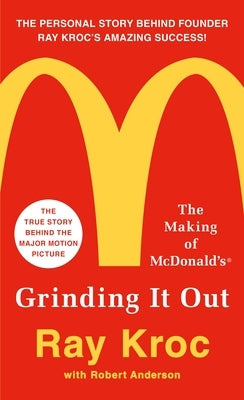Iwoz: Computer Geek to Cult Icon
$12.99
$16.95
I'm Highly Percent Sure
$24.99
Trump: The Art of the Deal
$21.99
$30.00
Andrew Carnegie
$17.99
$25.00
Finding My Virginity: The New Autobiography
$17.99
$25.00
The Unconquerable Game
$40.00
Grinding It Out: The Making of McDonald's
$7.99
$10.99
Weird in a World That's Not
$13.99
$18.99
Life Lived Wild: Adventures at the Edge of the Map
$21.99
$30.00
Reminiscences of a Stock Operator
$21.99
$29.95
The Wolf of Wall Street
$14.99
$20.00
Inside Studio 54
$19.99
$26.95
Me and Paul: Untold Stories of a Fabled Friendship
$14.99
$19.99
Just Call Me Orville: The Story of Orville Redenbacher
$12.99
$16.95
Living the Dream
$16.99
$17.99
Sex, Trucks, and Rock 'n Roll: A Spiritual Journey
$13.99
$18.99
Sex, Trucks, and Rock 'n Roll: A Spiritual Journey
$32.99
$34.99
Chisel Points in the Ground
$43.95





















































